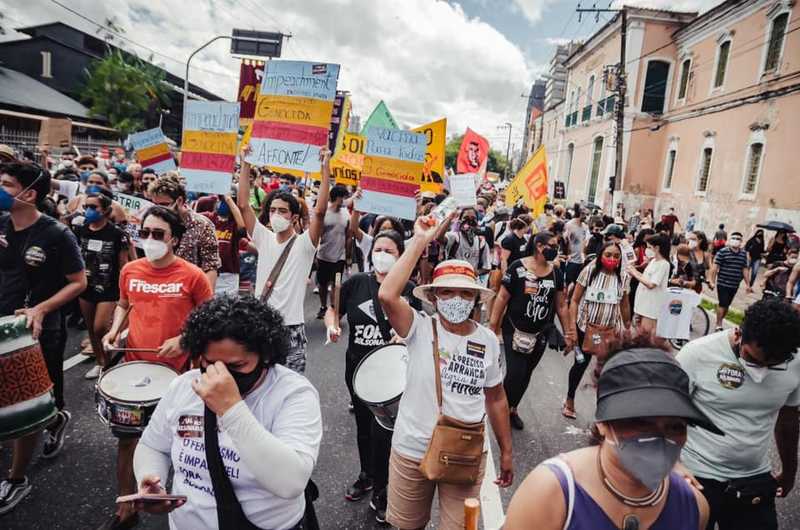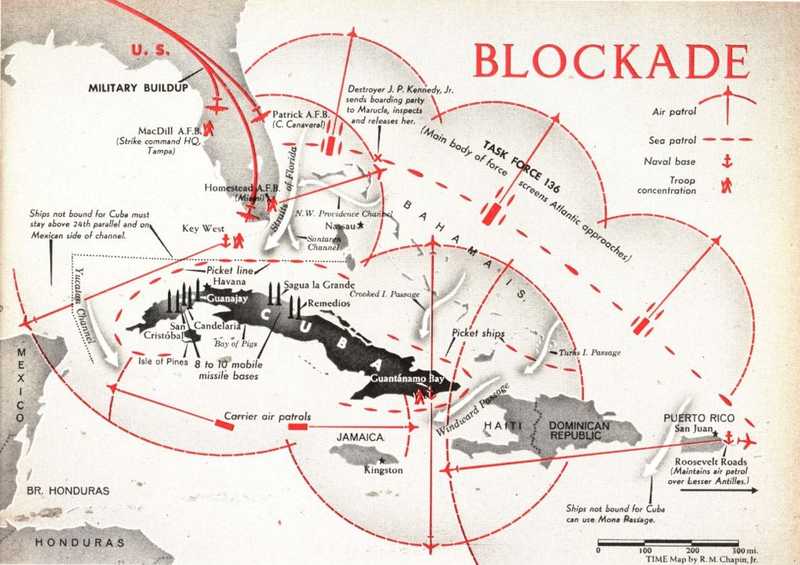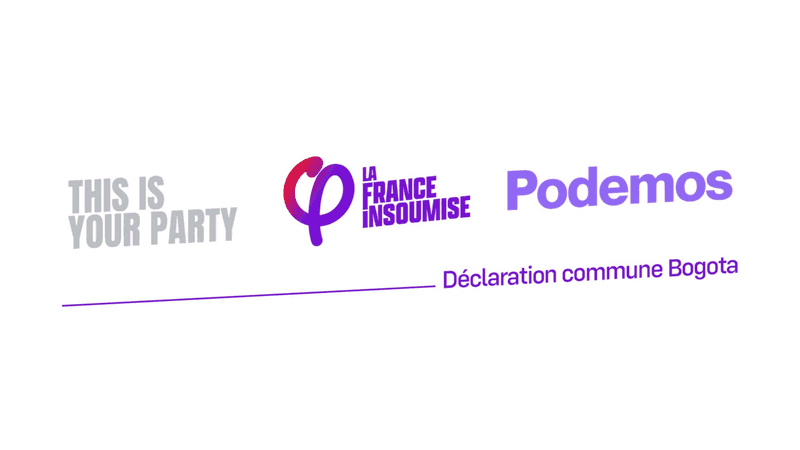
To the members of the Progressive International,
This is a call for solidarity. For more than two years, social movements and civil society organizations have been denouncing Bolsonaro’s violent and disrespectful actions against Amazon’s traditional peoples and against the environment and its defenders. As we organize mass protests in Brasília, we write to present to you a topic of utmost urgency which, despite its destructive potential, has remained under the radar of Brazilian and international media in the context of so many other threats and setbacks in Brazil.
That is Ferrogrão: a railroad project of more than 1,000 km which will tear the Amazon Forest in two, drastically affecting local communities and their forms of life, especially indigenous and traditional black communities (“quilombos”), and leading to unfathomable environmental impacts. In case Ferrogrão is implemented, it will lead to irreversible devastation, further aggravating the already dramatic scenario of deforestation, illegal land-grabbing, wildfires, and removal of traditional peoples from the region. It will also speed up the expansion of the agricultural commodity frontier, threatening Amazon’s biodiversity and sustainable development. It will poison important rivers, disturb wildlife, and lead to a higher carbon footprint, impacting the entire planet. Ferrogrão will affect places and lives well beyond Brazilian borders.
Under the pretext of logistical improvement, this project of pharaonic dimensions favors international commodity trading companies, promoting only their financial interests at the expense of an irreversible environmental liability. Ferrogrão’s construction has become one of the main goals of Jair Bolsonaro’s far-right government. It is vital to strengthen his political project. It deliberately ignores all the social, environmental and climate risks, at the same time trying to stamp the project with a “green seal”, when in fact this is one of the most aggressive projects in the entire Brazilian history. Ferrogrão’s project can only be compared to other human rights and environmental catastrophes such as the Transamazônica Highway and the Belo Monte Hydroelectric Dam.
Moreover, the project violates the Brazilian constitution by altering the territorial limits of the important Jamanxim National Park, a large area of environmental preservation. This unconstitutional move prompted an action by the Socialism and Freedom Party (PSOL) before the Federal Supreme Court, which suspended Ferrogrão’s project in a preliminary decision. According to the government’s calendar, Ferrogrão will be auctioned in the second half of 2021. Brazilian law, however, requires prior approval of the project by the Federal Audit Court (Tribunal de Contas da União). Brazilian civil society is mobilized to prevent the approval of this project.
This project is yet another proof of the authoritarianism and the well-known truculence of Bolsonaro’s government. Indigenous peoples were not consulted on the undertaking, which constitutes a violation of the international commitments assumed by the Brazilian State within the scope of ILO Convention 169 on Indigenous and Tribal Peoples. As if that were not enough, some indigenous leaders were enticed in the government’s attempt to obtain environmental licensing, as a complaint made by the Federal Public Ministry demonstrates. Therefore, it is imperative to show the world the threat of Ferrogrão, denouncing the high risk it poses to the forest, its peoples, its rivers, its fauna and its flora.
In recognition of Progressive International’s world leadership in the progressive field, and due to your great prestige in the international community, we ask for your support to help us stop this catastrophe. Your visit to Brazil can be of enormous importance for the resistance of Brazil’s traditional peoples in face of Bolsonaro’s genocidal and anti-environmental politics.
Executive Coordination of Articulação dos Povos Indígenas do Brasil (APIB):
Kretã Kaingang
Dinaman Tuxá
Alberto Terena
Kerexu Guarani
Sonia Guajajara
Anildo Lulu
Photo: APIB




